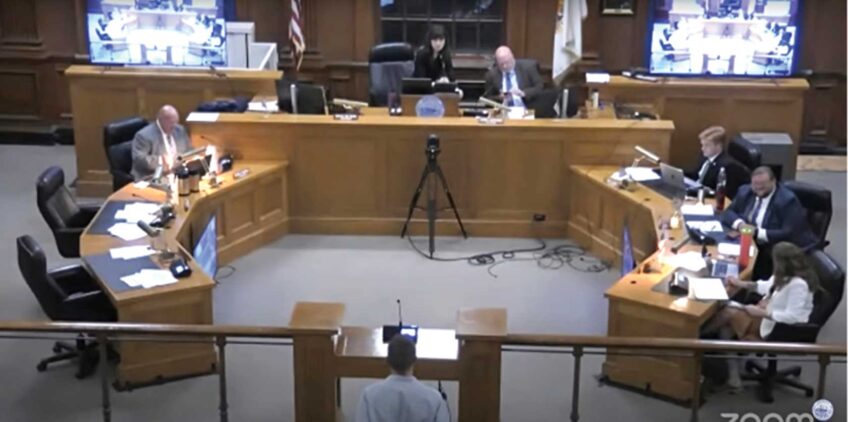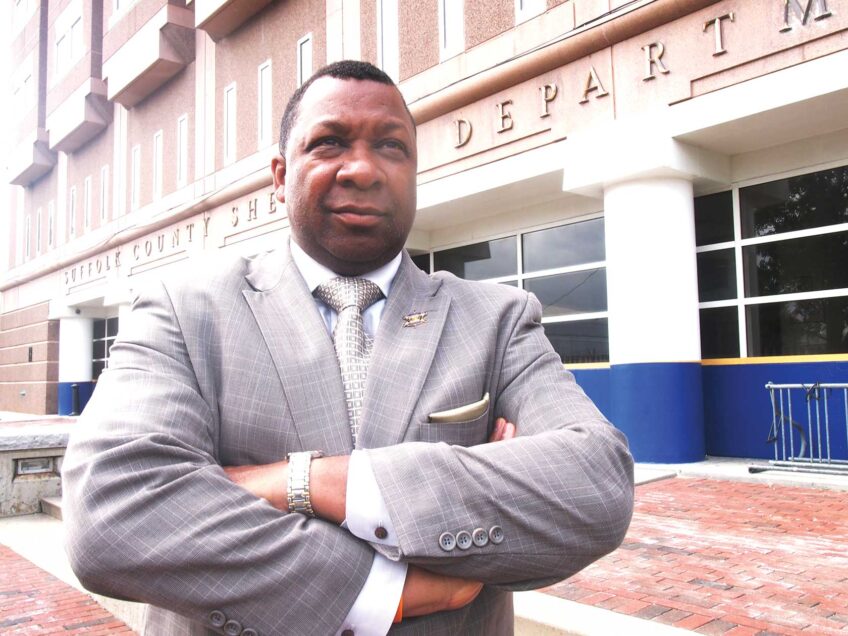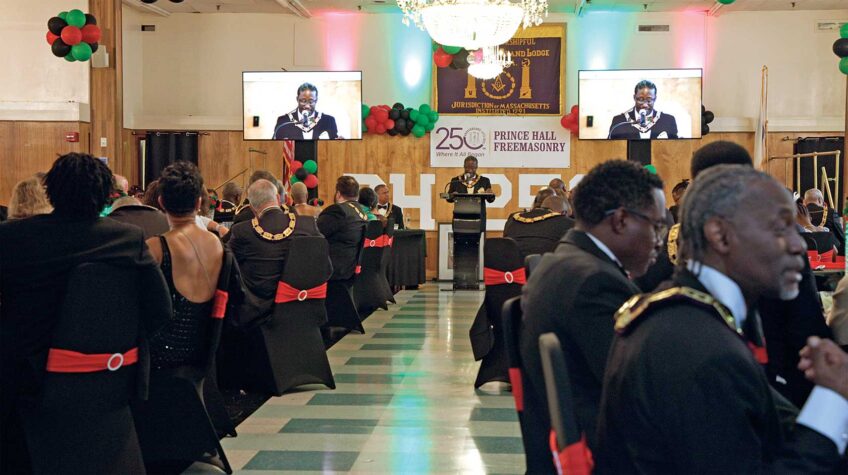City launches grant to reduce overdose deaths
Funding program prioritizes input from communities
A new $1 million grant program, financed by settlements with opioid manufacturers, seeks to reduce overdoses in Boston.
The Community Overdose Response Grants program, administered by the Boston Public Health Commission, is available to community-based organizations in offerings of up to $200,000 and is intended to increase care across the city, especially in communities of color. According to state data released in December, in 2022 there were 353 opioid-related overdose deaths in Boston.
This funding looks to expand impact from what Dr. Bisola Ojikutu, the BPHC’s executive director, said has been an effort largely centered around the encampments near the intersection of Massachusetts Avenue and Melena Cass Boulevard.
“A lot of our work at the city level has been focused on the encampment response and what we do in that setting,” she said. “Now that we have resolved some of those concerns, we are looking citywide and really trying to think strategically about what we do throughout the city of Boston about overdoses.”
The new grant takes a relatively focused approach to the issue of overdoses, with proposals required to include efforts around expanding access to naloxone — also known as Narcan — as well as providing education about overdoses and drug use and supporting connection to treatment programs.
The funding is intended to hone efforts into solutions that the city knows can work, Ojikutu said.
“We really want organizations to be, in a holistic way, thinking about how do we navigate people, but then at the same time, how do we also think about the surrounding community, and what it is that we need to know to prevent overdoses as well as to address them and intervene in what is happening,” she said.
That work is going to be largely focused on Black and Latino communities, which have faced an outsized number of deaths from the opioid crisis.
According to the BPHC, East Boston, Mattapan, Roxbury, Dorchester and the South End have seen the highest overdose rates. Overdoses increased by 29% among Black residents of the city and 9% among Latino residents from 2021 to 2022. The commission ranked overdoses as one of the leading causes of early death among Black and Latino men.
Incidents of drug users collapsing in public and turning blue before first responders arrive on the scene to revive them with Narcan have become increasingly common in the city, and were near-daily occurrences in the Mass & Cass encampments before the city cleared the area.
The health commission is prioritizing a community focus. The direction of this funding and the family overdose support fund launched earlier this year stem from a a community engagement process the city conducted last year.
“The only way to really address those issues is to engage those people who have the lived experience to understand what interventions will work and what won’t,” Ojikutu said.
Julie Burns, president and CEO of the nonprofit foundation RIZE Massachusetts, said that focus makes sure the funds are directed by the communities where they’ll end up.
“This is Boston’s approach to making sure that people closest to the problem have a say in how the funds are spent,” Burns said.
Much of that work will be targeted toward supporting and growing existing programs.
“We have a myriad of programs that are out there that are working, and they’re doing the things that I think are incredibly important,” Ojikutu said. “With this particular amount of money, what we’re hoping to do is to really engage community-based organizations. We’re trying to build infrastructure amongst those group of individuals who are already doing the work and expand the work that they’re doing, particularly around overdose response.”
The $1 million the city is offering is just a fraction of the more than $10 million it has already received from opioid settlements, as of March, and a smaller chunk of what it expects to receive by 2038 — an estimated $22 million or more.
It’s also a fraction of the overall financial toll the crisis is taking. A 2021 report from the U.S. Centers for Disease Control estimated that in 2017, the combined cost of opioid use disorder and fatal overdose deaths in Massachusetts surpassed $36 billion. Nationwide, those costs rose above $1 trillion.
But this grant is just one piece of a broader constellation of funding opportunities from the city and others to address the opioid crisis.
“Obviously, $1 million is a relatively small amount of money to put towards something that is incredibly important, such as opioid overdoses and overdoses in general,” Ojikutu said. “But it’s one piece of a larger puzzle. It’s not that this is all that we’re doing.”
Burns, too, said that the scope of this grant must be considered in that wider context.
“It’s not single million dollars,” she said. “It’s $1 million in a broader plan.”
The city in January announced a $250,000 family overdose support fund that will distribute financial aid to Boston families who lost loved ones to the opioid epidemic.
In a press release announcing that fund, the BPHC outlined funeral expenses, therapy, legal services and child care as some of the things the money could be used to support.
Other organizations, too, are working to fund solutions to the crisis. RIZE is planning to announce a grant later this month offering $3.75 million in general operating support to organizations in historically marginalized communities that are facing high rates of fatal overdoses.
At the state level, Massachusetts could also receive up to almost $60 million from the Biden Administration under the federal State Opioid Response Grants program. That program supports the use of the federal funding to increase access to medication to treat opioid use disorder; support a continuum of care with harm prevention, treatment and recovery support services; and provide care around use of stimulants like cocaine and methamphetamine.
Ojikutu said the potential funding is “wonderful,” but the health commission will have to wait to see how much funding the state gets from that program and how much of that comes to Boston specifically. But as that funding does come down the pipeline, she said, she hopes to continue the same processes of community engagement the health commission has been pursuing so far.
“I hope that if additional funding comes to us, that we continue to do what we have been doing: to be intentional, to ask communities what they want, and think about all the strategies that we put in place that actually work but need more support, and then move forward,” Ojikutu said.
Massachusetts has previously received about $117 million in State Opioid Response program funding.
The city is looking ahead toward other uses of the remainder of its opioid settlement money, Ojikutu said, with the potential for efforts focusing on housing and looking at gaps in current programming — areas of effort drawn from the city’s community engagement process.
“[We’re looking at] where the needs are, where there might be inequities, where we haven’t spent enough money, and really wanting to shore up the system of care for people living with substance use disorder who are at risk of overdose,” Ojikutu said.






